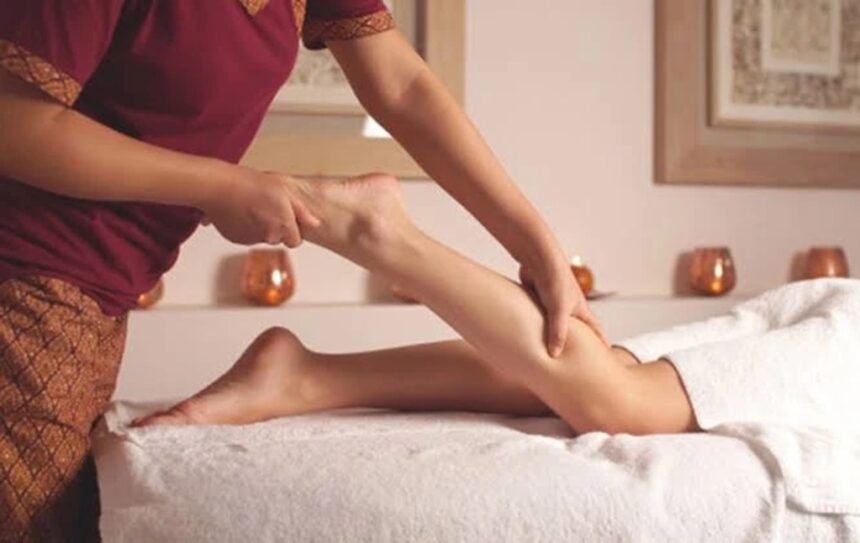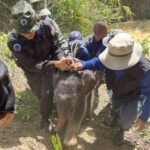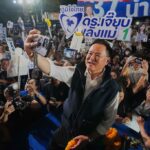BANGKOK – Dr. Jet Boonyawongwiwat, deputy director at Maharaj Nakhon Ratchasima Hospital, has issued a warning online about the dangers of Thai massage therapy for certain people. He pointed out five groups who should avoid massages because of serious health risks.
This warning follows the recent story of Ping Chayada, a singer who died after a massage therapist twisted her neck. The tragic incident drew attention to the possible dangers of massage for those with underlying conditions.
Dr. Jed explained that while traditional Thai massage is a long-standing practice known to help with relaxation and health, not everyone is a good candidate. For some, a massage could make things worse or even endanger their life. Here are the five groups he says should avoid massage:
-
People with Weak or Brittle Bones
Anyone with osteoporosis or weakened bones, especially older adults, should avoid massage. Their bones can break more easily than normal. Applying strong pressure, pressing on certain points, or twisting the body might cause fractures, sometimes without the person knowing right away.
For those who already have bone issues and want relief from pain, a forceful massage could end up causing more harm. In some cases, it can send people to the hospital. For safety, those with fragile bones should skip strong massages and talk to their doctor about safer ways to manage pain. -
People with Cancer, Especially When Cancer Has Spread to the Bones
Massage is not recommended for people with cancer, particularly if cancer has reached the bones or if they are going through chemotherapy. Intense pressure or stimulating the lymph nodes can help cancer cells spread throughout the body.
When cancer affects the bones, those areas are weaker and more vulnerable. Massage can increase pain or lead to serious problems, like broken bones or infections. Anyone being treated for cancer should avoid all types of massage. -
People Taking Blood Thinners or Antiplatelet Medication
Those who use blood thinners, such as aspirin or warfarin, need to be extra careful. These medications make it easier to bruise and harder for the body to stop bleeding. During massage, firm pressure or pressing with tools can break small blood vessels, leading to bruising or internal bleeding.
In more severe cases, bleeding caused by massage could require a hospital visit. People in this group should always inform their massage therapist about their medication and request only gentle techniques. -
Pregnant Women
Pregnancy often brings body aches, especially in the back, legs, or hips. While massage might sound appealing, pregnant women should be cautious. Pressing on certain points, like those on the feet, lower back or belly, may cause contractions. This can lead to miscarriage or early labour.
If an expecting mother wants a massage, it should only be by a therapist experienced in prenatal care. She should avoid strong pressure, especially in the first trimester and towards the end of pregnancy, when the body is most sensitive. -
People with Infections or Fever
Those who are sick, running a fever or have an infection (such as the flu, dengue or a bacterial illness) should rest and not get massages. Massage can make inflammation worse and help spread infections in the body.
For example, someone with dengue may feel muscle pain and want a massage for relief, but a massage can break blood vessels and raise the risk of bleeding. This can be life-threatening. Anyone with a fever or infection should recover first before thinking about a massage.
About Traditional Thai Massage
Traditional Thai massage can support relaxation and health when used with care. However, for people in these five groups, it can be dangerous. They should look for safer alternatives or speak with their doctor about pain relief and recovery options. Staying informed helps everyone make better choices for their health.
Thai massage is a traditional healing practice combining acupressure, assisted yoga postures, and Ayurvedic principles. It’s performed on a mat, with the recipient wearing loose clothing. The therapist uses their hands, elbows, knees, and feet to apply rhythmic pressure and guide the body through stretches, targeting energy lines called sen. Benefits include improved flexibility, reduced muscle tension, stress relief, and enhanced energy flow.
Originating over 2,500 years ago, it’s rooted in Buddhist medicine and attributed to Jivaka Kumar Bhaccha, a physician to the Buddha. Sessions typically last 1–2 hours and don’t use oils, unlike Western massages. It’s often described as “yoga for lazy people” due to its passive stretching.














